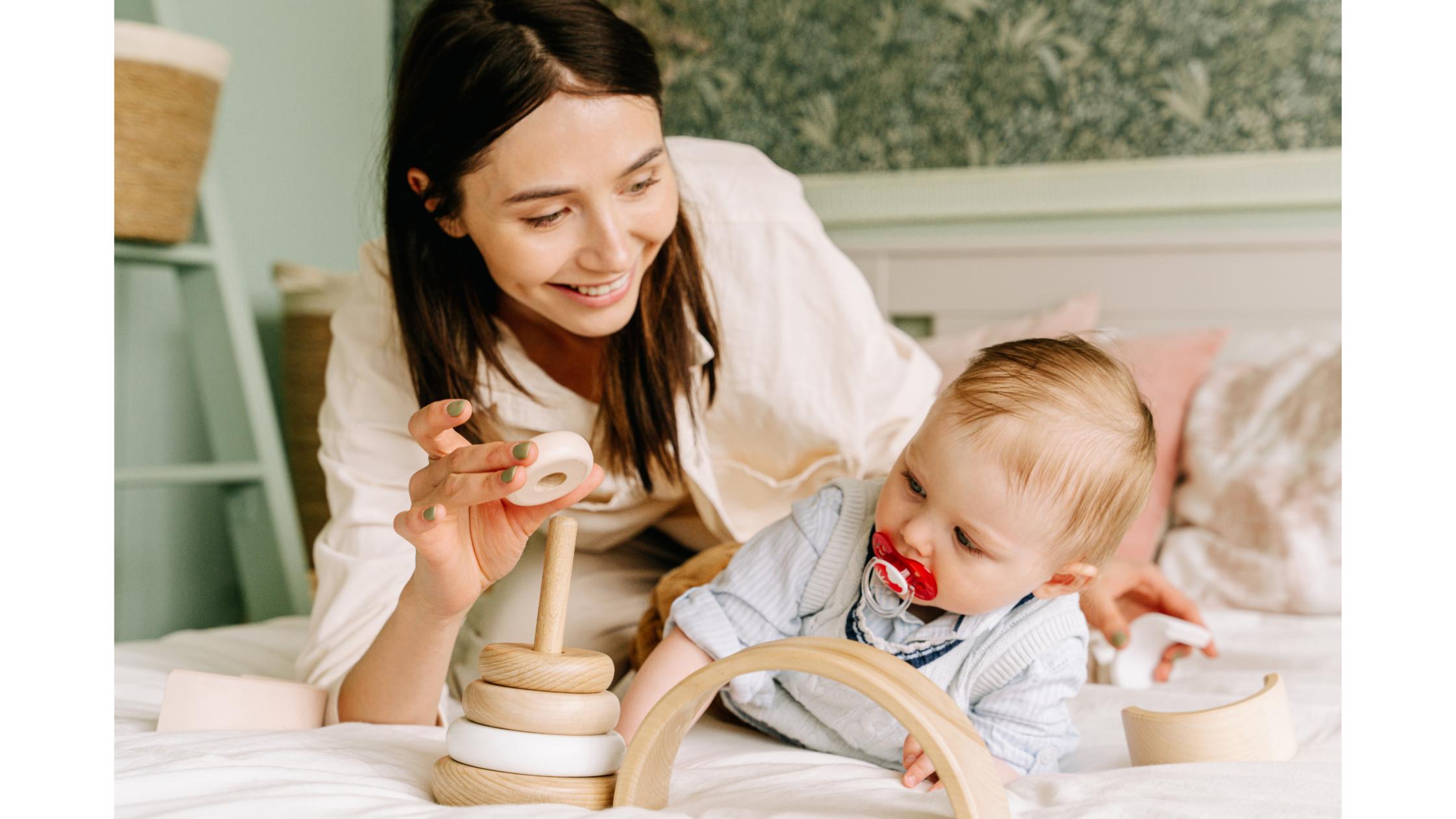Babies' emotional development covers important areas such as healthy attachment, self-confidence, social skills and emotional regulation. In order for babies to develop healthily in these areas, it is very important that parents and caregivers provide the right support and guidance. In this article, you'll discover some effective strategies to support your baby's emotional development.
Your Baby's Emotional Development
- Love and Attachment: One of the most basic needs of babies for their emotional development is love and attachment. Hug, touch and make eye contact with your baby often. Make him/her feel your love and provide a safe environment. This helps your baby develop a sense of emotional security.
- Emotional Communication: Interacting emotionally with your baby encourages his or her emotional development. Talk to him, make him laugh and smile. Express your emotions using your facial expressions and tone. Your baby develops social and emotional skills by understanding and imitating emotional expressions.
- Routines and Boundaries: Babies benefit from growing up in an orderly and consistent environment. You can offer your baby a safe environment by creating routines. Set a certain sleep pattern, eating routine and play times. This helps your baby learn emotional regulation and provides a secure sense of attachment.
- Responding to Emotional Needs: It is important to respond to your baby's emotional needs in a timely and sensitive manner. Pay attention to him and try to comfort him when he cries, is bored or restless. This supports your baby learning to express his own emotions and understand the emotions of others.
- Gameplay and Interaction: Play is a great way to support your baby's emotional development. For example, interact with toys, do dexterity activities, or sing and dance. Observe your baby's emotional expressions during play and strengthen your emotional bond by interacting with him.
- Emotional Reflection: It is important to understand your baby's emotional experiences and respond with empathy. Observe his emotional reactions and name what he is feeling. For example, “I see that you are very happy!” Respect his/her emotional world by using phrases such as “You feel scared, I'm here for you.” This helps your baby learn to express his feelings and strengthen the emotional connection.
- Calming Strategies: Babies may be restless or nervous at times. In these situations, you can use calming strategies. Create a calming environment for your baby, play soft music or sing lullabies. You can also help your baby relax by hugging him or giving him a calming massage. This helps your baby develop emotional regulation skills.
Babies' emotional development is influenced by factors such as love, attachment, emotional communication, routines, responding to emotional needs, play and interaction, emotional reflection, and calming strategies. By using these strategies, you can support your baby's emotional development and strengthen his emotional health. Remember, each baby's needs may be different, so observe your baby carefully and get to know yourself and your baby while bonding with him/her.
- Understanding Emotional Needs: Understanding babies' emotional needs is an important part of supporting their emotional development. Observe your baby to read his language and try to understand when he is restless, hungry or sleepy. Thus, you can meet your baby's needs on time and give him a feeling of secure attachment.
- Sensitive Reactions: It is important to respond sensitively to support your baby's emotional development. Be sensitive to your baby's signals and emotional expressions. Be gentle and patient when interacting with him. This helps your baby develop the ability to express emotional needs and trust you.
- Interest and Caring: Show interest and care for your baby to support his or her emotional development. Spend time with him, make eye contact and smile at him. This makes your baby feel valued and strengthens your emotional bond.
- Being a Positive Model: Babies imitate the behavior of adults around them. Therefore, be careful to be a positive model to support your baby's emotional development. Show him love, tolerance, empathy and patience. Demonstrate healthy ways to express and manage your own emotions.
Babies' emotional development should be supported by approaching them with love, care, security and sensitivity. By responding to your baby's emotional needs in a timely and accurate manner, you can create a healthy attachment and encourage emotional development. Remember, every baby is different and develops at his or her own pace, so it's important to consider your baby's individual needs and preferences.
Resources:
- American Academy of Pediatrics. (2016). Emotional Development: 2 Month Olds.
- Zero to Three. (n.d.). Building a Secure Attachment Bond with Your Baby.
- National Association for the Education of Young Children. (2016). Supporting Emotional Development in Infants and Toddlers.
